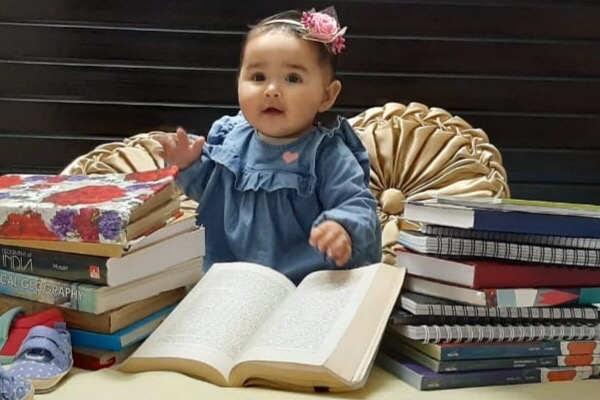6 Types of Play As Your Child Grows
- Shaily Tanwar
- Jun 22, 2021
- 3 min read
My child doesn't sit for even five minutes for any activity.. How am I supposed to make him/her learn..??
Are you a worried mumma?? Worry not..
Children at different age engage differently in a play. They have various interactions as they grow.
Children love to play because it's fun. But did you know it's important for their healthy development.Children learn and practice key skills during play. The benefits of play are immense. Simple activities like throwing a ball again and again, making noises develop their senses, fine motor skills.
Description of different stages of play are included below. However, I would like to clarify it for you that every child is different and develops at different pace. These stages are progressive in nature but they often occur at the same time.
1. Unoccupied Play
From birth to three months unoccupied play occurs. Babies eyes develop at this stage. Infants observe their surroundings or do random movements. This is the first stage of play. It doesn't look like play to most people but it is play for infants.
Parents need not do anything in this stage. They should let the child explore and wiggle their hands and feet in the air or make little sounds or smile for no reason.
2. Independent Play
Also known as Solitary Play- when your child is playing alone. This type of play usually begins to emerge between age one or two.
You must have noticed your toddlers, preschoolers playing own their own with their stuffed animals, toys, dress-up, dolls, books, push and pull along toys and making all sort of stories and sounds with them as if talking to them.
Kids at this stage are self-centric, as if world revolves around them. As a parent you should let your child explore and be bored sometimes and develop their own games and activities.
The kids who are shy continue to play independently for a few years.
3. Observer Play/ Spectator Play
Observer Play or Onlooker Play also emerges around two or three years of age. A child may observe others like their parents, siblings , any other kid or any member of the family.
They need to learn something like rules , how to play with a certain toy or how to use their fork. They may get involve or not with others. But this stage is very important for the next stage .Watching others help them gain confidence.
4. Parallel Play
As it sounds the child plays adjacent to each other. This Type of play is usually seen in two to three years old.
Even if two kids are in the same room they play separately without interacting. But they are observing each other,listening and often mimics each other.
Activities like drawing, toy cars,building blocks in their kindergarten happens in this play.
5. Associative Play
This type of play emerges around three years. In this also children play separately but they are involve with others in doing an activity.
This is an important stage as a child learns socialization, taking turns, problem solving and language development.
This is the stage where your little one will start making friends.
6. Cooperative Play
This play usually emerges around four to five years of age. At this stage most children have learned the above stages and it is the amalgamation of all stages.
Children with siblings may develop this stage earlier . They learn to play together like a board game, or solving puzzles.
Parents should encourage more and more outdoor plays at this stage.
A Word of Wisdom:
Every child is special.Your child need his/her own time and space to learn these skills.
The learning during a play is a child's own discovery. As a parent you should encourage and support your child.






Comments